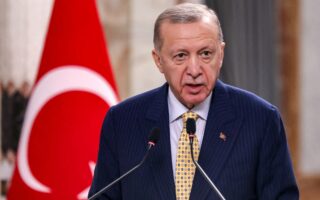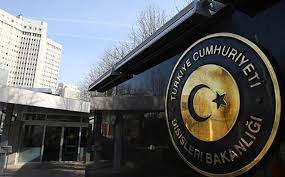Athens on edge amid Mideast upheaval
Further regional destabilization could lead to migration increase, impact the supply chain

Athens is gravely disturbed about the upheaval in the Middle East, further augmented by the assassinations of Hamas political head Ismail Haniyeh in Tehran and Hezbollah commander Fuad Shukr in Lebanon.
From Athens’ perspective, this development is yet another step toward perpetuating the current destructive cycle of violence and destabilization, as well as undermining any hope of a ceasefire.
The expected escalation – as no one in Athens believes that Tehran is likely to let such a highly symbolic strike on Iranian soil go unanswered – raises fears of wider regional destabilization and implications that touch on many areas beyond the obvious security one, of course. One of these primary threats perceived by Athens is an increase in migrant flows, while more regional destabilization could have an impact on the supply chain, exerting pressure on inflation and the cost of living.
The bleak evaluations are bolstered by the reality that Israel is now fighting not only Hamas in Gaza and Hezbollah in Lebanon, but is also increasingly entangled in an unpredictable rivalry with Iran. The Houthis’ growing involvement (by hitting directly at Israel) emphasizes the severity of the problem.
Lebanon and Iraq are territories where rivalry by proxy is the main feature, but Athens is not overlooking the very strong involvement of Turkey as the self-proclaimed defender of Islam – a mantra that has formed the centerpiece of President Recep Tayyip Erdogan’s foreign policy.
For Athens, however, it remains a priority not to disturb the strategic relationship with Israel. It is no coincidence that political consultations between Greece and Israel were held on Wednesday in Athens. More specifically, the political director at the Israeli Ministry of Foreign Affairs, Aliza Bin-Noun, had extensive discussions with Greek Deputy Foreign Minister Alexandra Papadopoulou. The Israeli diplomat noted that “there is a need for stability in the Middle East and strong cooperation between countries that embrace realism in the region,” and accused Iran and its proxies in the Middle East of being a “threat to international peace, stability and supply chains.”
Jordan, Saudi Arabia and Egypt complete the puzzle in the region. All three have played a positive role throughout the crisis but are confronted with a variety of problems that could compound the volatile Middle East mix at any time.
The sense of uncertainty is heightened by the fact that the US is in the midst of an election season, with President Joe Biden virtually retiring because he will not seek re-election and two presidential candidates who are understandably focused on domestic issues.





